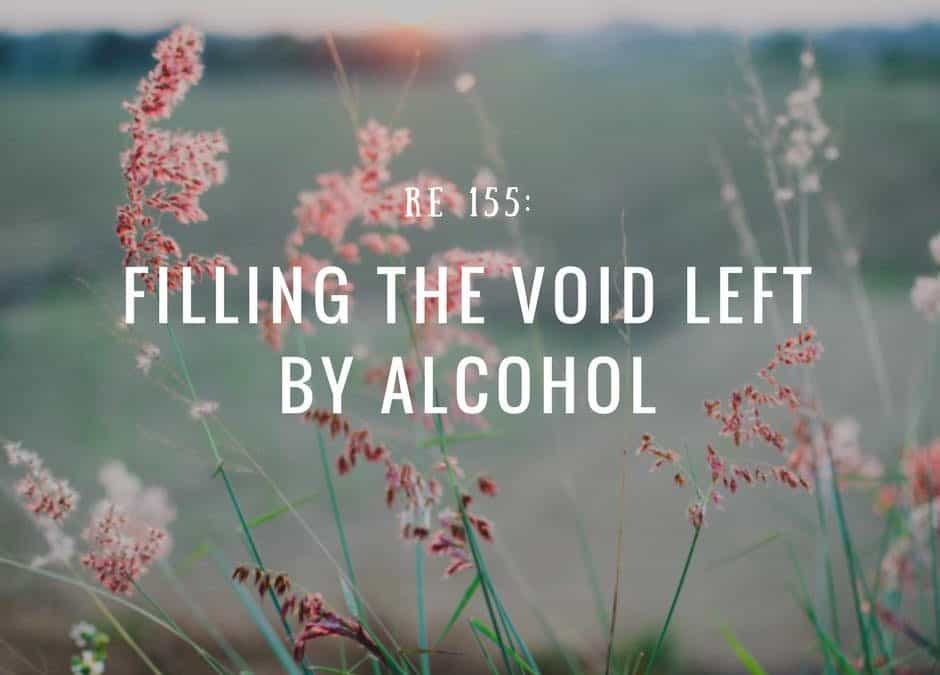
by Paul Churchill | Feb 5, 2018 | Podcast
Podcast: Play in new window | Download
Subscribe to the Recovery Elevator Podcast Apple Podcasts | | More
“For us to be successful in sobriety, we must fill the void left by alcohol.”
-Russel Brand, Recovery: Freedom from Our Addictions
Drinking plays a big role in our lives. Many of our social gatherings revolve around it. We use it to relax or to deal with difficult emotions. When we quit drinking, a void is then created that can be felt across many areas of our lives. What do we do with this? Should we fill it? With what?
When the void is present, some try to use willpower to ignore it or to muscle through or around it. Unfortunately, studies show that willpower is a finite resource and can not be solely relied upon to quit successfully. If the void (also known as the emotional and spiritual causes of alcoholism) isn’t properly dealt with, one can become what is known as a “dry drunk.” The behaviors, coping mechanisms, and mindsets of the alcoholic are still present; the only difference is the lack of alcohol consumption.
In sobriety, we find ourselves with more… more time, more energy, and more mental clarity. It’s important to fill this time and spend this energy in a healthy and productive way so that the reasons for the void’s existence begin to disappear as we lay a healthy and solid foundation for living. Find things you like to do, and more importantly, find the communities surrounding those activities and do your best to become a part of them.
Chrissy, with 2 and ½ years, talks about how she married her drinking buddy:
SHOW NOTES
[12:50] Paul Introduces Chrissy.
Chrissy has been sober for 2 and ½ years. She’s from Mill Valley, California. 48 years old. District Sales Manager. Mother of two teenage boys. She has two dogs. Married.
[14:42] When did you first realize you had a drinking problem?
She used to be in denial. She married her drinking buddy. Started dabbling to get out of her head. Became a problem when she moved to a town where everyone drank. Started drinking daily. Lead to a health scare.
[17:10] What was it like to find out you had Grade A Liver Cirrhosis?
She lost a lot of weight. She was mistaken for someone who was pregnant. Ignored swelling abdomen and yellow eyes. Eventually couldn’t ignore symptoms. The doctor called her an alcoholic. She says the doctor is a good place to go for help.
[20:50] Did you ever attempt to moderate or control your drinking?
She always tried to manage it. She had an idea for a perfect medium buzz. The health scare is what made her consider quitting.
[22:47] What was it like when you first quit?
It took a few weeks for her body to repair itself. She now gets checked up regularly.
[25:30] What did you learn about yourself during this process?
Once the fog was lifted, she began to ponder why she drank. Now she says it isn’t important. It’s more important to stay sober. Year 1 was “how do I stay sober?” and now year 2 is “how do I manage my emotions?”. Year 3 is now easier and more relaxing.
[27:10] What was it like to cut ties with alcohol completely?
She felt like she was kicking her best friend to the curb. She had to get it out of her immediate surroundings. At first, she felt sad, was white knuckling it. Now she feels that quitting drinking was the one thing that changed her life completely.
[31:17] What does a day in recovery look like for you?
A neighbor took her to a meeting. Found a sponsor. Podcasts. Reading books. Surrounding myself with sobriety. Changed her priorities.. recovery, then family, then work.
[33:25] What was it like to marry your drinking buddy?
She used to blame him a lot for her drinking. She noticed that he drinks less. They did therapy together. She’s focusing on herself. She’s not sure whether or not her husband is an alcoholic.
[36:00] What advice do you have for someone in recovery which is with someone who drinks?
Changed her perspective. Release me from the bondage of “self”. She focuses on herself. She sees her partner more with compassion.
[39:40] What do you have to say to a person who is scared of quitting because they feel they might become depressed?
Reach out and get some help. Any hospital will help you to quit drinking. Get to a safe place… get over the hump, just for a few days.
[42:20] Rapid Fire Round
- What was your worst memory from drinking?After delivering a baby, all she wanted to do was get home and have a drink.
- Did you ever have an “oh-shit” moment?When a colleague told her that her eyes were yellow.
- What’s your plan moving forward?Continue to stay in the middle of the herd. Continue to work with the sponsor, and keep going.
- What’s your favorite resource in recovery?Her community in recovery.
- What’s the best advice you’ve ever received (on sobriety)?“If your ass falls off, pick it up and come to a meeting.”
- What parting piece of guidance can you give listeners who are in recovery or thinking about quitting drinking?If you’re thinking about it, just go for it. If it’s not for you, you’ll know.
- You might be an alcoholic if…A worker at the grocery store mistakes your alcohol purchase as being for a large group of people.
Resources mentioned in this episode:
Recovery: Freedom from Our Addictions by Russell Brand
Connect with Cafe RE– Use the promo code Elevator for your first month free
Sobriety Tracker iTunes
Sobriety Tracker Android
Sober Selfies! – Send your Sober Selfie and your Success Story to info@recoveryelevator.com
“We took the elevator down; we gotta take the stairs back up, we can do this!”
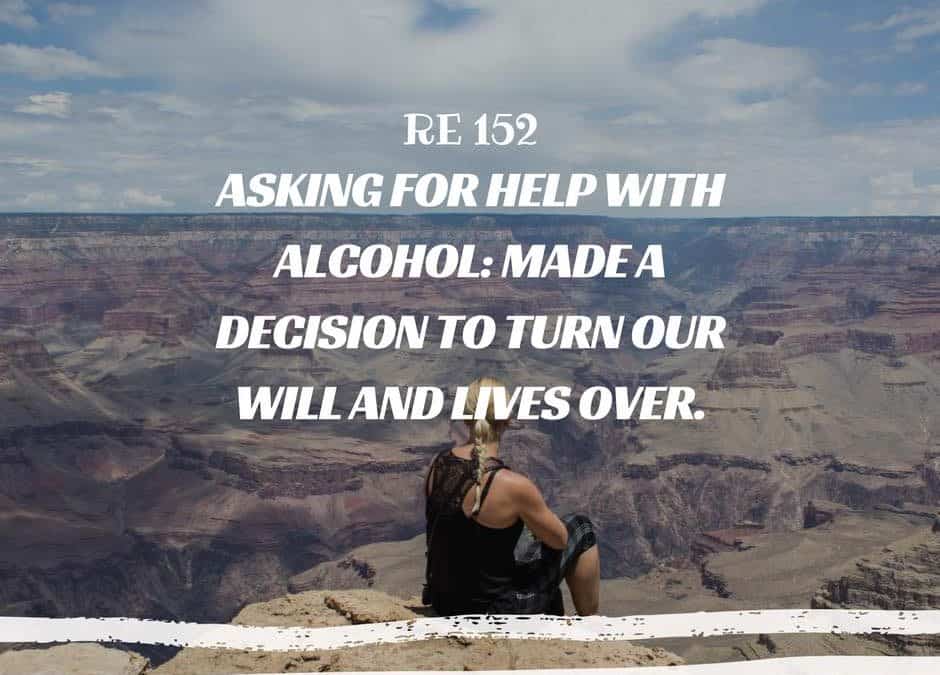
by Paul Churchill | Jan 15, 2018 | Podcast
Podcast: Play in new window | Download
Subscribe to the Recovery Elevator Podcast Apple Podcasts | | More
Paul summarizes Step 3 from the “Big Book” of Alcoholics Anonymous.
“Made a decision to turn our will and our lives
over to the care of God as we understood Him.”
Step three in a nutshell means we are asking for help. A God of our understanding can be anything. We must be convinced that a life run on self will can hardly be a success.
Jenna, with over 3 years since her last drink, shares her story
SHOW NOTES
[8:39] Paul Introduces Jenna. I live in Colorado, I work in IT, and I’m 38 and have a 10-year-old daughter. I love hiking, running, and skiing. I love to cook.
[12:38] Paul- When did you start drinking?
Jenna- I actually didn’t start drinking until I was in college. I didn’t drink in High School. The first time I drank I was 12. I discovered a bottle of alcohol, and poured it into a coke.
[21:25] Paul- What was it that led you to quit drinking?
Jenna- I had several bottoms before September of 2014. I knew alcohol wasn’t working for me, but no one knew that alcohol was the cause of my anxiety and depressing and feeling horrible.
[28:42] Paul- How liberating was it to be in that environment where your mom with nothing to hide?
Jenna- She cooked me lots of healthy food. It took me days to be able to eat. That love and being cared for was huge. She was there for me for whatever I needed.
[34:15] Paul- Talk to me about the timeline, and the patience. What do you have to say on that? It does keep getting better.
Jenna- That first year was amazing and hard at the same time. I had to learn how to do everything without alcohol in a culture where everything revolves around alcohol. Having accountability with my sponsor and my husband was huge in all of those times.
[43:21] Rapid Fire Round
- What was your worst memory from drinking? That would be when we were in Vegas for my Grandma’s 90th birthday party, and I took my daughter to the bathroom, and I got lost. I didn’t know how to get back to the restaurant and I was drunk.
- Did you ever have an “oh-shit” moment? Labor Day weekend of 2014. We were going camping. It was always my job to pack up the camper. I decided to drink before doing that, by the time we got out to the campsite 90% of what we needed was not in the camper.
- What’s your plan moving forward? I plan to keep growing personally and learning.
- What’s your favorite resource in recovery? What works for me is going to meetings, and connecting with other people.
- What’s the best advice you’ve ever received (on sobriety)? Surrender, and ask my higher power for help.
- What parting piece of guidance can you give listeners who are in recovery or thinking about quitting drinking? You can find your bottom at any time, just put down the shovel and quit digging (drinking).
- You might be an alcoholic if… when you are going through airport security your Ziploc bags of liquid shampoo bottles are filled with vodka.
Resources mentioned in this episode:
Alcoholics Anonymous “Big Book” PDF
Step 3 Pages 34-41
Connect with Cafe RE– Use the promo code Opportunity to waive the set up fee.
Sobriety Tracker iTunes
Sobriety Tracker Android
Sober Selfies! – Send your Sober Selfie and your Success Story to info@recoveryelevator.com
“We took the elevator down, we gotta take the stairs back up, we can do this!”
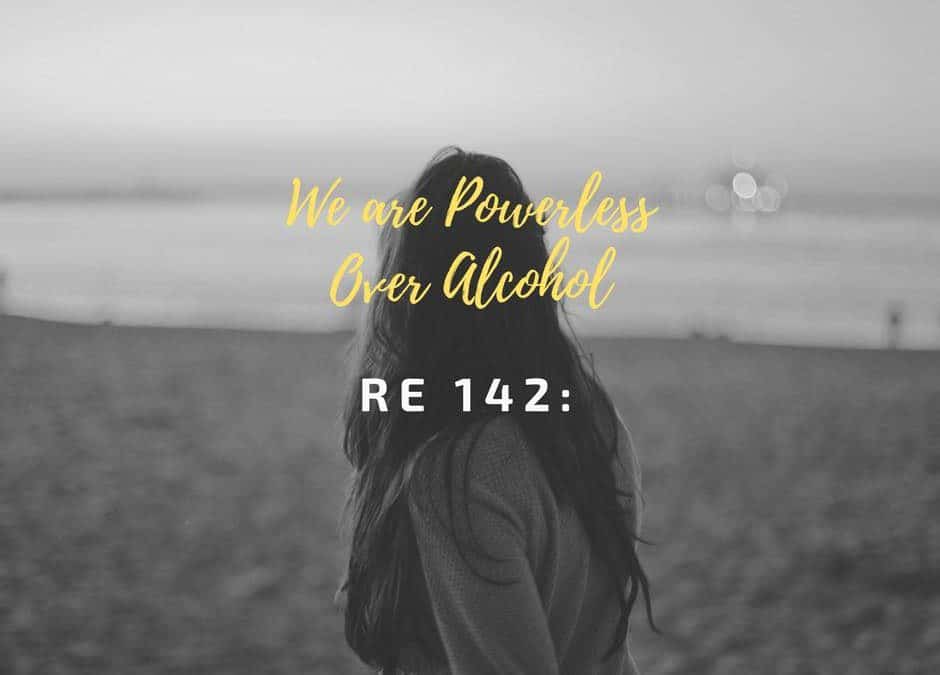
by Paul Churchill | Nov 6, 2017 | Podcast
Podcast: Play in new window | Download
Subscribe to the Recovery Elevator Podcast Apple Podcasts | | More
Paul discusses Step One: “ We admitted that we were powerless over alcohol, that our lives had become unmanageable.” from the Big Book of Alcoholics Anonymous.
David, with 46 days since his last drink, shares his story
SHOW NOTES
[10:20] Paul Introduces David. I’m a dad of 2 great boys aged 11, and 7. We live in Atlanta. I work at a software firm. I have been there for quite some time. I’m 42, and divorced. For fun there is a lot of baseball, I help coach basketball. Both my boys are in scouts. I love to play and collect guitars.
[12:52] Paul- When did you realize that perhaps you didn’t drink normal?
David- I have several memories of self-questioning my drinking habits going back a decade. I have milestones in my life I questioned my drinking.
[29:02] Paul- You are identifying yourself as a non-drinker. Have you experienced a different case of the F-its like I have 3 years of sobriety, F-it, I might as well keep moving forward?
David- I love this concept, I have not felt this feeling of you have come this far, you might as well keep going. I feel like that day is going to come. You have to be hopeful for the future. I am doing this. You have to balance that with healthy caution around relapse. I can be proud, I can be hopeful, but I have to be cautious.
[34:28] Paul- I know from the retreat you met a lot of people who have the same life goal, how has that affected you moving forward?
David- I described it when I started this journey. I didn’t have any tools. I had no institutional knowledge of what I was getting myself into. It was through your podcast I was introduced to AA in a meaningful way. What I learned from the retreat is that this is something where community helps.
[39:23] Rapid Fire Round
- What was your worst memory from drinking? You can insert any viscous hangover here. Missing a flight out of Vegas after a night of tearing it up. Head throbbing, and having to rearrange flights and childcare back in Atlanta while my head was throbbing.
- Did you ever have an “oh-shit” moment? When I figured out that the unit of measure was no longer 2 beers, it was a six-pack. No longer 3 glasses of wine, it was the entire bottle.
- What’s your plan moving forward? My number one internal dialogue is that I am no longer like that. I am no longer that person. It is almost a chant I give myself daily. I’m plugging back in with my therapist.
- What’s the best advice you’ve ever received (on sobriety)? While you’re working on your sobriety, your addiction is doing pushups.
- What parting piece of guidance can you give listeners who are in recovery or thinking about quitting drinking? Your litmus test is if you have you every asked yourself if you have a problem with alcohol, that is the test. I know I did that hundreds of times over a decade. Sick and tired of being sick and tired. The management of chaos we all endure as we introduce chaos into our evening routine.
- You might be an alcoholic if your favorite drink is “lots of it”
Resources mentioned in this episode:
Alcoholics Anonymous- Big Book
Connect with Cafe RE– Use the promo code Elevator for your first month free
Sobriety Tracker iTunes
Sobriety Tracker Android
Sober Selfies! – Send your Sober Selfie and your Success Story to info@recoveryelevator.com
“We took the elevator down, we gotta take the stairs back up, we can do this!”
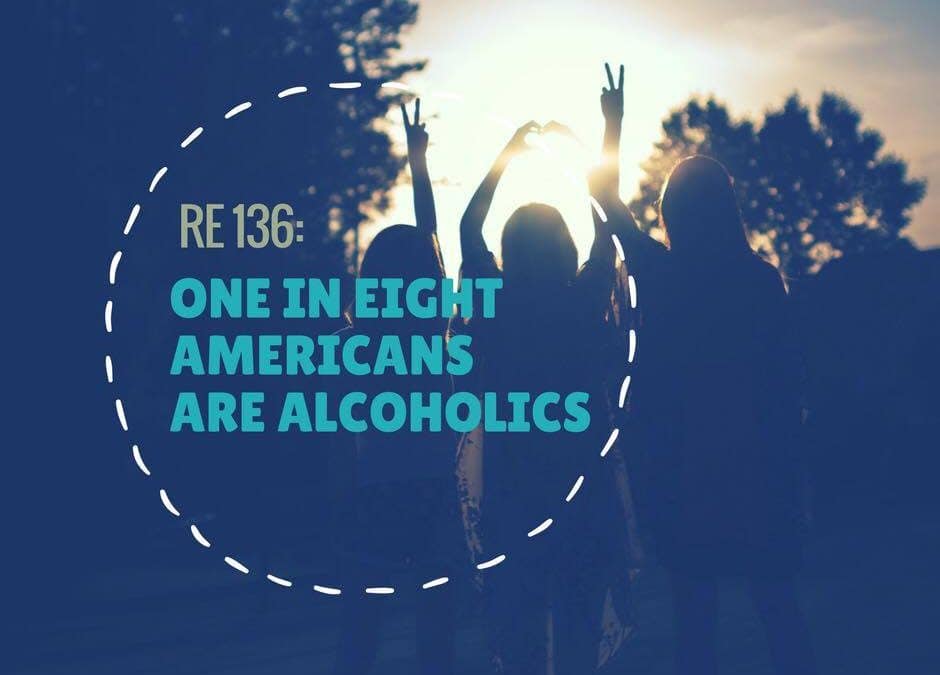
by Paul Churchill | Sep 25, 2017 | Podcast
Podcast: Play in new window | Download
Subscribe to the Recovery Elevator Podcast Apple Podcasts | | More
New data has revealed that one in eight Americans are now alcoholics due to an alarming rise in alcohol consumption in women, elderly people and ethnic minorities.
Experts at the National Institute on Alcohol Abuse and Alcoholism say that the rise could constitute a public health crisis that is being overshadowed by the opioid epidemic and marijuana legalization.
During an 11 year gap, the number of people who received a diagnosis of alcoholism shot up by 49 percent, meaning 12.7 percent of the population – or roughly one in eight Americans – are alcoholics.
Megan, with 11 hours since her last drink, shares her story
SHOW NOTES
[5:15] Paul Introduces Megan. I’m from Baltimore, Maryland. I am 38, single, with a live-in boyfriend.
[7:19] Paul- What forced you to reach out to me again, and give us a little background.
Megan- The whole point of what you are doing is when you can relate to other people. I love that you are an advocate for the acceptance part of it. People are ashamed to come out so to speak. I didn’t start drinking until late in college. I liked the way it made me feel. I wasn’t self-conscience. It was never really a problem. One day in my late twenties I realized I was drinking everyday.
[23:49] Paul- Talk to me about your withdrawal symptoms.
Megan- It’s usually worst the second and third day. The shaking and the anxiety is the worse. I can’t shut my brain off.
[26:36] Paul- What’s your plan? How are we going to do this?
Megan- I am going to get through today. One day at a time. Right now it is just getting through today. I know that I want to get sober and stay sober. Am I done yet? I’m not entirely sure. I want to be there, but I don’t know if I am.
[32:36] Rapid Fire Round
- What was your worst memory from drinking? Blacking out. I started drinking after a run; I woke up the next day and had no memory of how I got home.
- Did you ever have an “oh-shit” moment? About a month ago, I got up in the morning and was walking to the grocery store and I couldn’t walk. I inched across the street and went back home.
- What’s your plan moving forward?
- What’s your favorite resource in recovery? I love podcasts. The HOME Podcast, the Shair Podcast, Recovery 101.
- What’s the best advice you’ve ever received (on sobriety)? Don’t beat yourself up.
- What parting piece of guidance can you give listeners who are in recovery or thinking about quitting drinking? You are going to feel crappy. Don’t make it worse on yourself by pouring poison into yourself. It’s going to get a little bit better everyday.
- You might be an alcoholic if the liquor store on the corner knows exactly who you are, and lines up 4 mini bottles of Fireball everyday at 9:00 in the morning.
Resources mentioned in this episode:
It’s a public health crisis: 1 in 8 Americans are now alcoholics By Abigail Miller for Dailymail.com
Connect with Cafe RE– Use the promo code Elevator for your first month free
Sobriety Tracker iTunes
Sobriety Tracker Android
Sober Selfies! – Send your Sober Selfie and your Success Story to info@recoveryelevator.com
“We took the elevator down, we gotta take the stairs back up, we can do this!”
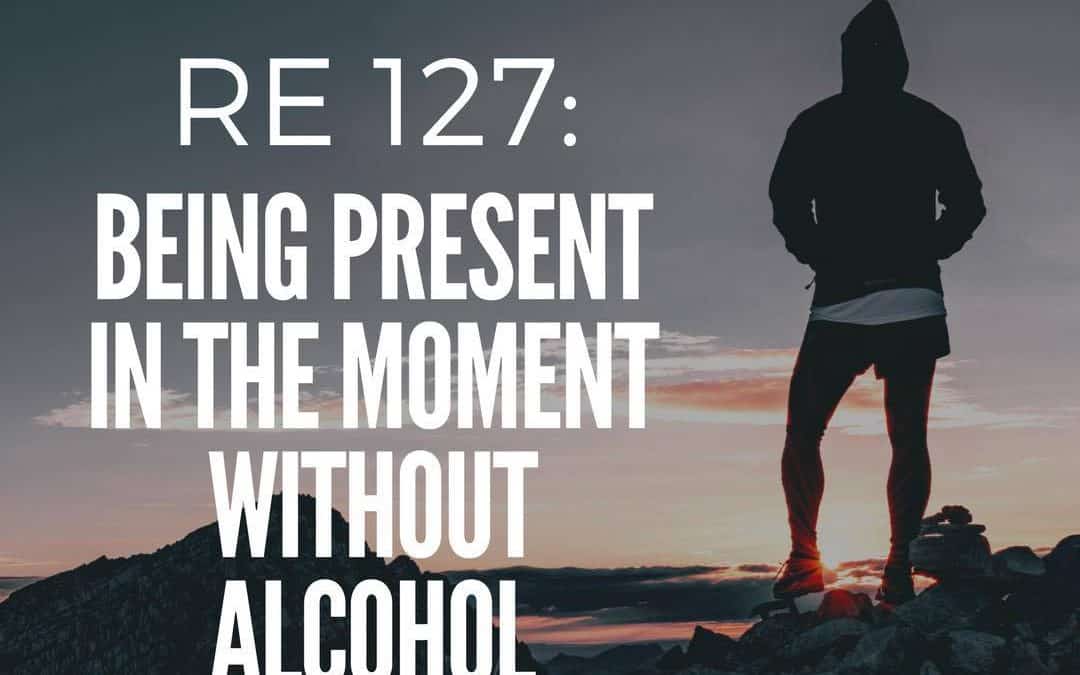
by Paul Churchill | Jul 24, 2017 | Podcast
Podcast: Play in new window | Download
Subscribe to the Recovery Elevator Podcast Apple Podcasts | | More
Rule Number One of podcasting is plug in the microphone.
Pete, with 488 days of sobriety shares his story.
SHOW NOTES
[2:19] Paul Introduces Pete. I am 38 years old, and golfing is my favorite leisure activity. I have an 8-year-old daughter and a 2-year-old son. I am in construction sales, mostly traveling around Ohio and surrounding states.
[6:07] Paul- When did you realize you had a problem with alcohol Pete?
Pete- I’ve always known, or at least had the fear of having a problem. I could drink a case of beer by myself in High school.
[12:23] Paul- Was this a bottom you experienced, or where you done?
Pete- I hit a spiritual bottom. Things that were important, no longer seemed important. My wife, great job, and truck were all things that weren’t making me happy. I realized that doing these things that I was taught would make me happy weren’t. I was bankrupt spiritually and emotionally. My wife opened the work bench, and the drawer was full of empty and full booze bottles. They were devastated. I realized that suicide wasn’t’ an option. That was the moment that made me change everything.
[17:25] Paul- What was the outpatient therapy like? Walk us through that.
Pete- I went to a state certified program. I attended with several other professionals who learned a great deal about addiction and recovery.
[24:44] Paul- What have you learned most about yourself these past 488 days?
Pete- I have learned that I like peace, calm, and serenity. I accepted chaos because that is what I knew. My life is really good, but I made it really bad by a lot of choices that I made.
[28:18] Paul- Have you had cravings, and how do you overcome cravings them?
Pete- My cravings as of today are more “I would like a drink” but more thoughts than cravings. In the beginning I had physical cravings. I don’t have the impulse to drink now. Alcohol was the medicine that fixed everything for me.
[30:25] Rapid Fire Round
- What was your worst memory from drinking? The experience with my wife and daughter not being able to ride bikes because of my booze hidden in the drawer.
- Did you ever have an “oh-shit” moment? For me it was when my mother in law died from alcoholism, in the nursing home my biggest thought was how do I get out of here and have a drink without anyone noticing.
- What’s your plan moving forward? Continue to present in the moment, and doing, not thinking about things I don’t do, and then regretting them. I just need to do the best I can.
- What’s your favorite resource in recovery? Meditation and Prayer. I’ve used the Headspace app, there is a meditation guru that lives in our village.
- What’s the best advice you’ve ever received (on sobriety)? Follow direction. Putting faith in a blind process.
- What parting piece of guidance can you give listeners who are in recovery or thinking about quitting drinking? You are feeling the way you are supposed to be feeling at that time. Talk to other people. My feelings are normal; it’s okay to relearn.
- You might be an alcoholic if when you walk out of your recovery center, and you see one of your friends that you’ve been partying with forever and he says “Hey Pete, I was surprised to see you here.” Then I thought about it, and It’s really not much of a surprise to see you here.
Resources mentioned in this episode:
Recovery Elevator Retreat
Connect with Cafe RE– Use the promo code Elevator for your first month free
Sobriety Tracker iTunes
Sobriety Tracker Android
Sober Selfies! – Send your Sober Selfie and your Success Story to info@recoveryelevator.com
“We took the elevator down, we gotta take the stairs back up, we can do this!”







